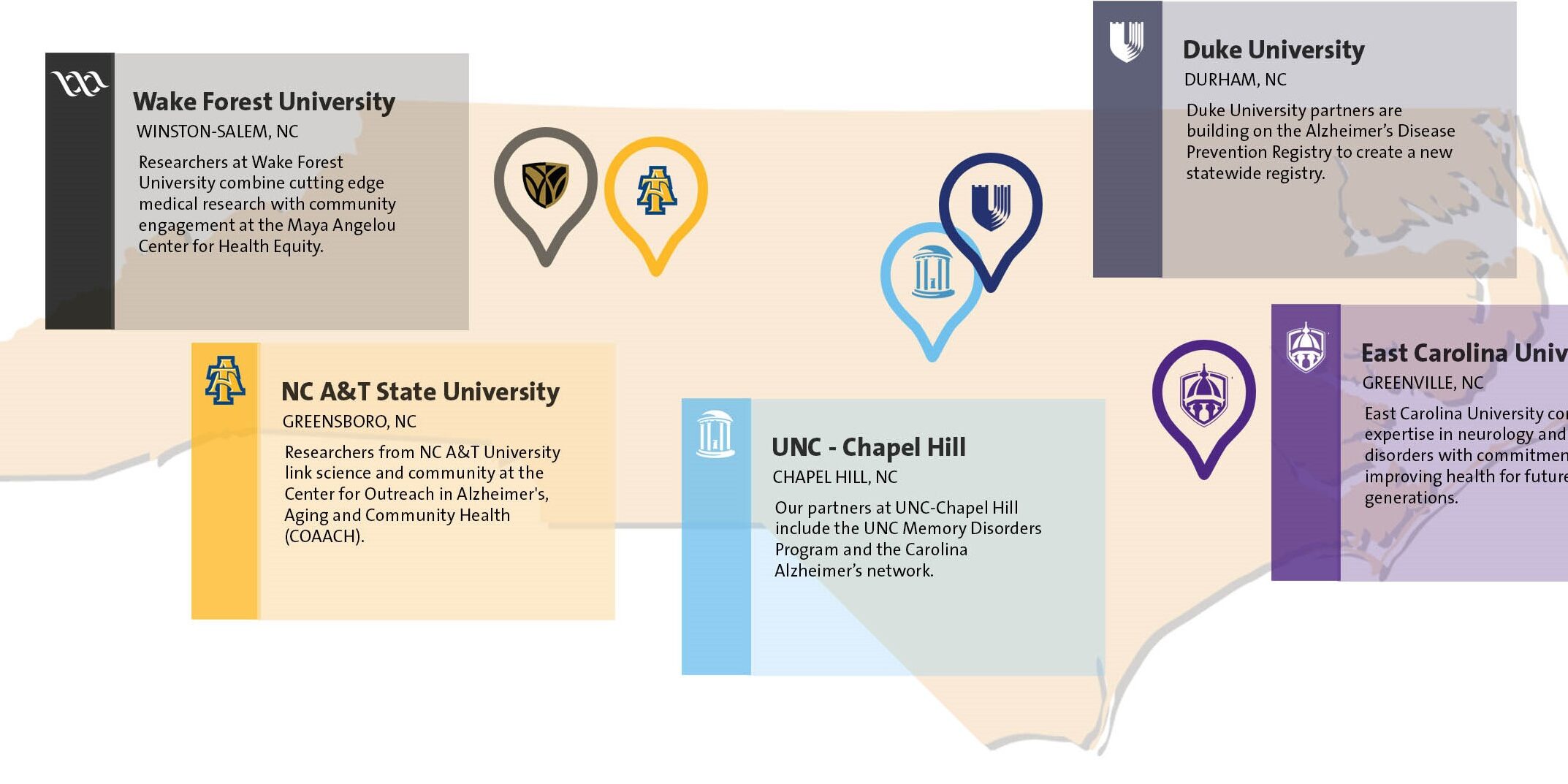

Written by Michelle Ries
This week, the state’s new Brain Health Registry went live at https://ncbrainhealth.org/, an accomplishment that stakeholders hope accelerate of the development of effective therapeutic approaches for Alzheimer’s disease and related dementias. In 2015-2016, the NCIOM convened a Task Force on Alzheimer’s Disease and Related Dementia. Through a mandate from the North Carolina General Assembly, the Task Force was charged with developing an actionable strategic plan for the state of North Carolina focused on 16 topics related to Alzheimer’s disease, related dementias, and promotion of brain health.
Recommendation 7.1 from the Task Force called for the development and implementation of a statewide registry of both healthy individuals and those diagnosed with dementia. The Task Force outlined goals of this registry, including: to connect and facilitate participation in clinical studies; accelerate the development of effective therapeutic approaches for Alzheimer’s disease and related disorders; increase focus on inclusion of underserved and underrepresented populations in research and development of treatments; and promote the ways a statewide registry may have a positive economic impact on North Carolina.
As a result of the Task Force recommendation, in 2017 the North Carolina legislature appropriated funds for the North Carolina Registry for Brain Health. Housed at Duke University and overseen by the NC Department of Health and Human Services, the Registry has brought together brain health experts from collaborating institutes across the state. The Registry’s Research Partners include Duke University, East Carolina University, North Carolina A&T State University, the University of North Carolina at Chapel Hill, and Wake Forest School of Medicine. The NCIOM and AARP of North Carolina are stakeholder organizations who help to support the Registry.

In the two years since receiving funding, partners have:
Next steps for the North Carolina Registry for Brain Health include strengthening community engagement with the registry across the state using various communication methods to increase awareness of dementia and brain health, facilitating online access to informational resources and local services, and facilitating Alzheimer’s disease research across the partners to develop effective treatments and prevention strategies.
More information and registration for the NC Brain Health Registry available at www.ncbrainhealth.org.